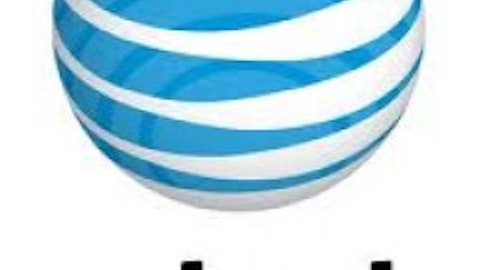Best Buy Co., Inc. (NYSE:BBY) announced last week that it plans to match competitor prices for the upcoming holiday shopping season. The price match policy is targeted toward not only helping the company help compete with its top retail competitors, such as RadioShack Corporation (NYSE:RSH) and Wal-Mart Stores, Inc. (NYSE:WMT), but also a more immediate plan to help it compete with online retailers that have been taking consumer electronics market share from the company, namely Amazon.com, Inc. (NASDAQ:AMZN).
Wal-Mart made its own stab at Amazon last month by announcing it would stop selling Amazon’s Kindle in its stores. We see this as a strategic move to help slow down Amazon’s market share infringement. The new Kindle will allow individuals to browse and purchase items directly from the device. It has been said that Amazon’s Kindle only breaks even, and is a bigger play for getting consumers to purchase Amazon’s higher margin goods—see more details on the whether the Kindle is merely breaking even.
Best Buy’s price match plan will hopefully convince more people to actually make purchases in the store, as opposed to viewing items in Best Buy stores and later purchasing from an online retailer. Undoubtedly the plan will squeeze margins, but the long-term benefit will hopefully be return customers.
We continue to like Amazon’s prospects with being able to continue taking market share from all retailers and open new revenue sources with its hardware and tablet offerings, but we have concerns about Amazon’s current price and feel the stock might be overvalued. The company trades at a trailing P/E of almost 300. Granted other notable e-commerce companies do not have the same growth prospects Amazon, they do trade much cheaper than even Amazon’s 100 forward P/E. Companies such as Overstock, Blue Nile and Netflix all trade below 75x earnings.
However, although most of the discussion surrounding Best Buy’s hardships is tailored toward Amazon, the company also faces pressure from the one-stop shop that is Wal-Mart, as well as RadioShack. Yet, RadioShack is becoming less of a worry for the big-box retailer. Since the bankruptcy of Circuit City, Best Buy has established its dominance as the consumer electronics retailer. RadioShack recently lost its CEO and is expected to begin a round of store closures over the next few years. With a partnership in place with Target and a market cap that is sub-$250 million, it is not unreasonable to think that perhaps RadioShack could be takeover target—see which companies might buy RadioShack.
While Wal-Mart has decided to shun Amazon, and perhaps for good reason, Best Buy is more than willing to embrace Apple Inc (NASDAQ:AAPL). It has been widely noted that Apple is expected to launch a mini iPad. While other news notes that perhaps Best Buy is gearing up its stores for arrival of the device, with iPad mini accessory display cases showing up in Best Buy stores. Earlier this year Apple launched its third generation iPad and iPhone 5. Speculation puts a possible iPad mini reveal as soon as end of the month. Best Buy and Apple’s relationship goes beyond just that of the upcoming iPad mini, earlier this year Best Buy almost matched the number of iPhones that Apple sold directly. Although Best Buy needs Apple more than vice-versa at this stage, the partnership appears to be serving both well.
As expected, Amazon, Apple and Wal-Mart all have huge interest from fund mangers. Over 35 funds we track had at least 5% of their 2Q 13F portfolio invested in Apple—see all funds owning Apple. A few top names included David Einhorn, D.E. Shaw and Jim Simons. Although Amazon does not have quite the overwhelming fund interest, the names of investors are equally as impressive, including Ken Fisher and Steven Cohen. Again, Wal-Mart did not have the same amount of portfolio concentration as Apple, but the company has attracted two of the top fund managers we follow, Warren Buffett and George Soros.
We are a believer in Best Buy’s turnaround capabilities and new initiatives, such as price matching, but believe the current valuation has a takeover premium that puts the valuation above our comfort level. However, this is based on the idea that the company would stay public and face its reality over the next three to five years of seeking a new strategy that will allow it to be competitive, either with online retailers or in other segments, such as mobile. Despite this, if a takeover were come to fruition, the company is undervalued based on co-founder’s Richard Schulze offer of $24-$26. It would also appear that many hedge funds might be banking on such a take over, including Ken Griffin, Steven Cohen and Ray Dalio, all upping their 1Q stakes significantly during 2Q—read more on Best Buy’s takeover hopes here.






